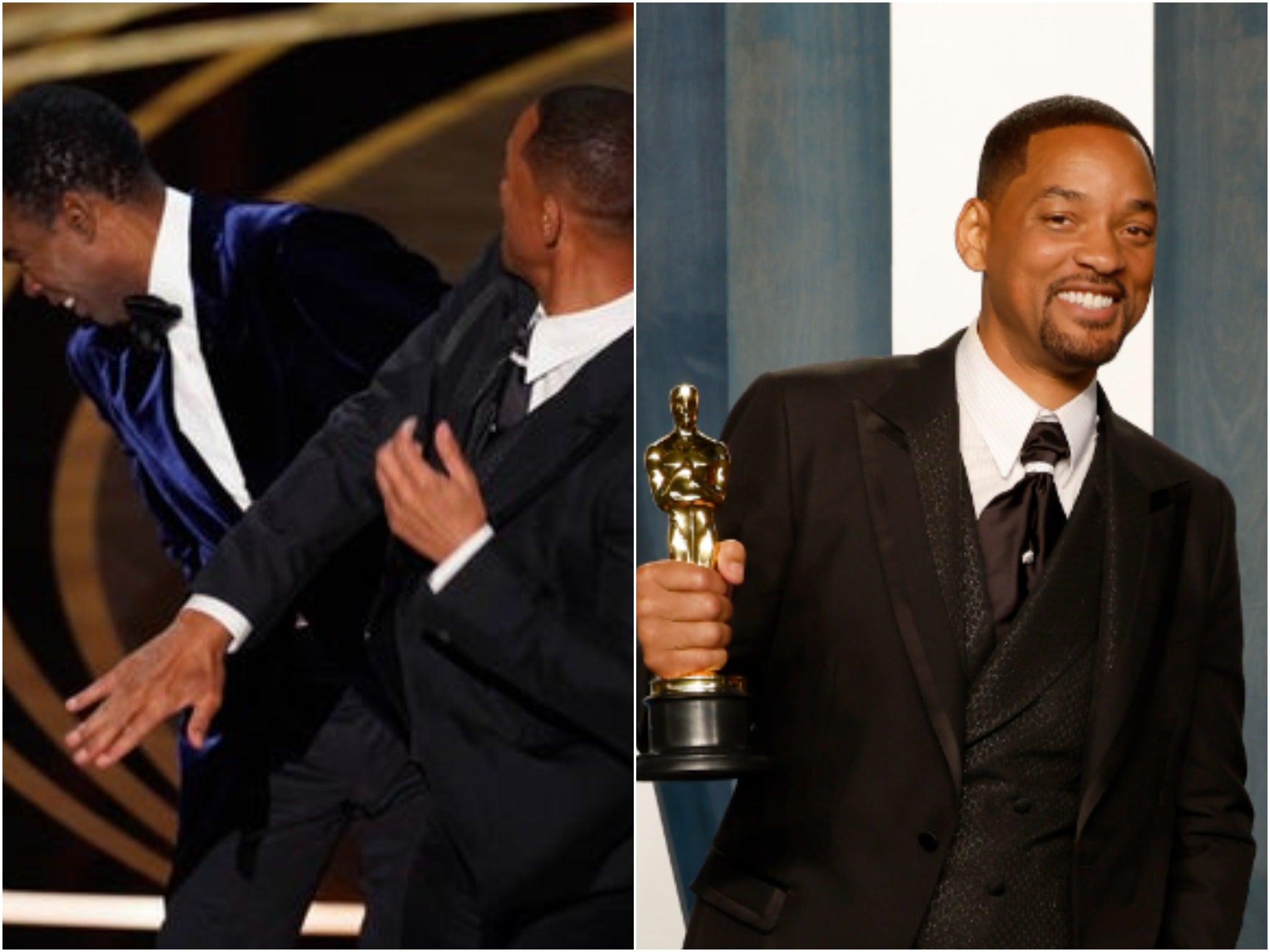What Will Smith’s memoir can tell us about his Oscars slap — and his teary apology
Smith’s apology — ‘love will make you do crazy things’ — as he accepted the Best Actor award was rhetorically unsettling, but it also offered a kind of tragic explanation

Will Smith’s onstage assault on presenter Chris Rock, apparently in defense of his wife, Jada Pinkett Smith, will go down in history as one of the Oscars’ most shocking moments. In an evening of crummy contrivance, it made for genuinely outrageous television. But it was also just part of a general chaos that marred a ceremony nearly undone by poor direction.
It was meant to be Smith’s night. His career-best performance in King Richard as the father of Venus and Serena Williams was Oscar nip, a portrait of shambling masculinity touched with pathos and humor. He was the early frontrunner, and his strategically timed memoir, Will, published in late 2021, only compounded his momentum. He won the BAFTA, the Golden Globe, and the Screen Actors’ Guild Award in the run-up to last night. Victory at the Dolby Theatre seemed assured.
What went wrong? Who can say. Smith writes in his memoir that his perfectionist obsession with success is born of insecurity. His was a childhood scarred by violence and a complicated relationship with an abusive father. His straight-edge, upbeat persona was not just the key to his early accomplishments in hip-hop, TV, and movies but also a defense mechanism. “I’d conflated being successful with being loved and being happy,” he writes. Perhaps seeing his wife being insulted at the moment he reached the pinnacle of his achievements was a knock he felt he simply couldn’t abide.
The slap heard around the world will be analyzed a thousand ways. It was a moment of toxic masculinity that detracted from a historic night for women filmmakers, notably CODA’s Sian Heder and The Power of the Dog’s Jane Campion. For sure, it was insensitive of Rock to make Pinkett Smith’s alopecia the butt of a joke. But Smith’s response was disproportionate, especially in the context of an awards show where jokes about movie stars in attendance are a normal part of the script. It goes without saying that violence has no place at the Academy Awards. Certainly it couldn’t have been further from the putative theme of the night, “Movie Lovers Unite”.
Smith’s apology — “love will make you do crazy things” — as he accepted the Best Actor award was rhetorically unsettling, but it also offered a kind of tragic explanation. “Richard Williams was a fierce defender of his family,” he stammered — and it doesn’t take a Freudian to retrace the emotional throughline from his outburst to his performance as the “crazy father” (his words) in King Richard to the familial violence of his early years. “My father tormented me,” he’s written. “And he was also one of the greatest men I’ve ever known.” Smith’s haunted, tear-stricken face as he revealed what Denzel Washington said to him in the moments following the incident said it all: “At your highest moment, be careful — that’s when the devil comes for you.”
To be brutally cynical, the evening’s biggest moment covered up an otherwise shaky night in Hollywood. The Academy was itself acting out last night, cornered by plummeting ratings into some wayward editorial choices, not least the decision to give out eight awards before the telecast. This was not only disrespectful to the nominees in those categories — including editing, score, and hair and make-up — but also ruined the suspense for loyal viewers. Meanwhile, an attempt to introduce direct democracy into proceedings led to the nonsensical “Oscars Cheer Moment”, a YouTube-like assortment of random clips from Dreamgirls, The Matrix, and Zack Snyder’s Justice League. You might very well ask.
Frankly, the best thing about the Oscars was… the Oscars. Emotional speeches by Questlove, Jessica Chastain, and Troy Kotsur were all great television. The reunion of Francis Ford Coppola, Al Pacino, and Robert De Niro in honor of 50 years of The Godfather was a touching moment and a reminder of the convening power of Hollywood’s golden night. And fistfights aside, the ceremony was already historic. Kotsur was the first Deaf man to win an acting Oscar while Ariana DeBose became the first LGBTQ woman of color to do so. CODA’s Best Picture win was the first for a streaming service and a welcome boost for films about people living with disabilities. In recent years, the Academy’s reforms have paved the way for a steady stream of such moving milestones.
Next year, perhaps everyone would do well to heed the yogi-like words of Jessica Chastain. “I just want you to know you are unconditionally loved for the uniqueness that is you,” she said while collecting Best Actress. For Will Smith, that might mean accepting permission to forgive himself and relinquish some of the frantic perfectionism that perhaps triggered his extraordinary eruption. For the Oscars, meanwhile, it’s a cue to give up on the hunt for new demographics and give its remaining viewers what they want — the glamor, self-indulgence, and old-fashioned bumptiousness of the Academy Awards of yore.
(Dune, by the way, quietly won six Oscars, the most of any film. But that’s nobody’s headline today.)
Bookmark popover
Removed from bookmarks